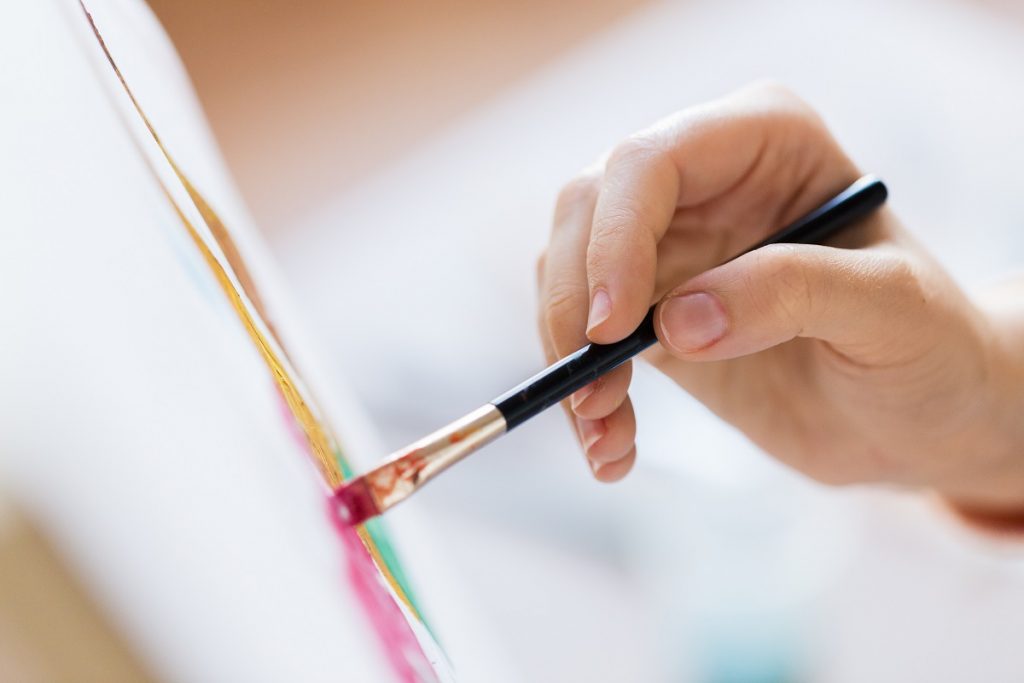- Foster a creative haven for your child’s artistic expression, igniting inspiration and nurturing their imagination.
- Seek inspiration from all sources and infuse joy into the process.
- Provide a variety of art materials and encourage creative play.
- Offer support and encouragement to your child’s artistic endeavors
- Consider enrolling them in music classes to enhance their creativity and self-esteem.
Encouraging artistic abilities in children is a great way to foster their creativity and helps them develop important skills such as problem-solving, communication, and self-expression. By providing your child with the right environment and opportunities, you can nurture their artistic talents and help them explore various art forms. This guide will explore five effective tips to encourage artistic abilities in your child.
1. Create an Inspiring Space
Creating a dedicated space where your child can freely express their artistic abilities is essential.
Here are some tips on how to create an inspiring space:
Set up the Space
Creating an inspiring space for your child’s artistic expression is essential. Choose a corner in their room or a designated area with plenty of natural lighting and enough space to move around. Ensure the area is comfortable so your child can focus on creating and easily access art supplies like paper, paints, colored pencils, and clay.
Encourage your child to personalize the space by displaying their artwork or creations. This helps them feel inspired and motivated to keep creating new art pieces. Add some cozy elements like a rug or pillows for comfort while they work on their projects.
Find Inspiration Everywhere
Expose your child to art forms by visiting art galleries, watching art-related documentaries, and decorating your home with artwork. Surrounding them with inspiring visuals stimulates their imagination and can motivate them to explore their artistic talents. Look for kid-friendly activities such as painting classes or pottery workshops that you can do together.
You can also explore art from different countries and cultures. Reading stories, playing music, or going on virtual field trips to other places can give your child a fresh perspective and help them learn about new ideas they can incorporate into their artwork.
Make it Fun
The key to engaging your child in exploring their artistic abilities is making the process fun. Invite them to explore, experiment and create without imposing a specific outcome. Encourage them to take risks in the creative process and have open conversations about what they are making. Additionally, try different materials like clay or paint for interesting results.
Celebrate your child’s accomplishments by having them share their creations with family and friends. Give positive feedback on their work and praise them for the effort they put into it. This will help boost their confidence and inspire them on their creative path.
Be a Role Model
As a parent, you can be your child’s biggest role model when exploring artistic expression. Demonstrate to them how art can be used as an outlet for emotions or to communicate ideas. Show them various techniques and styles you are familiar with, like drawing or painting, so they can learn from your example.
Encourage your child to explore art forms, such as printmaking, sculpture, photography, and film-making. Model for them the importance of dedication and learning new skills by taking on your own creative projects. This will help them understand the value of mastering new techniques and inspire them to be more creative.
2. Provide a Variety of Art Materials

Exposing your child to a wide range of art materials and mediums is important to encourage artistic abilities. Experimenting with different tools and materials allows children to discover their preferred art forms and styles. Consider introducing them to watercolors, acrylic paints, oil pastels, markers, and more. Encourage them to explore various techniques like drawing, painting, sculpting, and collage-making.
Providing a diverse range of art materials gives your child the freedom to experiment and find their artistic voice. Remember to allow them to explore without the pressure of creating a masterpiece. The focus should be on the process and enjoyment of creating art rather than the result.
3. Encourage Creative Play
Creative play is an excellent way to stimulate your child’s artistic abilities. Provide them with open-ended toys such as building blocks, clay, or dress-up costumes, which allow for imaginative play. These activities engage their senses and encourage them to think creatively.
Consider organizing art-themed playdates where children can collaborate on projects, share ideas, and inspire each other. Encourage your child to participate in storytelling or role-playing activities, fostering their imagination and helping them develop a narrative approach to art.
4. Provide Support and Encouragement
As a parent, it’s important to support and encourage your child’s artistic endeavors. Show genuine interest in their creations, ask open-ended questions about their process, and praise their efforts. Display their artwork proudly at home and celebrate their achievements.
Additionally, consider enrolling your child in art classes or workshops where they can learn new techniques and interact with other young artists. These classes provide a structured environment to develop their artistic skills while fostering community.
5. Build Your Child’s Music Skills

Music is a powerful artistic expression that greatly enhances your child’s creativity. Consider enrolling them in professional music classes for kids, such as piano, guitar, or singing lessons. Learning to play an instrument or sing not only helps develop musical abilities but also improves cognitive skills, coordination, and discipline.
Music classes offer a unique opportunity for children to explore their artistic talents through rhythm, melody, and expression. It allows them to discover different genres of music, compose their tunes, and perform in front of an audience, boosting their confidence and self-esteem.
In Closing
Encouraging artistic abilities in your child requires creating an inspiring space, providing various art materials, promoting creative play, offering support and encouragement, and considering music classes to enhance their artistic skills. Incorporating these tips into your child’s daily life can foster their creativity and empower them to explore their artistic passions. Remember, the key is to provide a nurturing environment where they can freely express themselves and enjoy the process of creating art.



